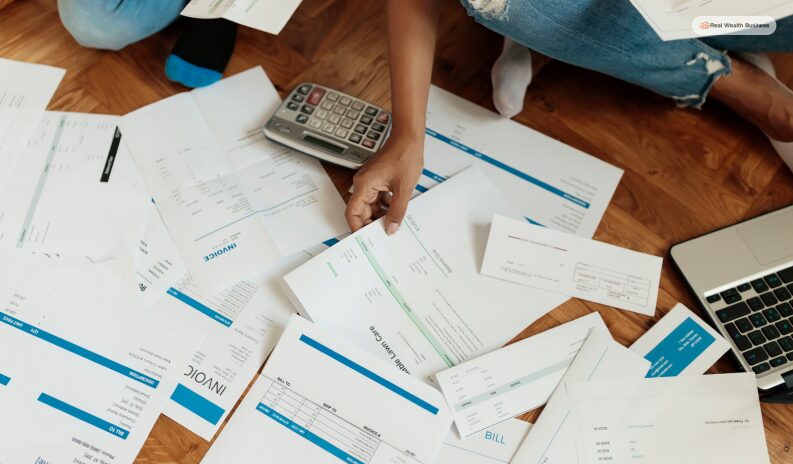Navigating Debt Collection Lawsuits
by Abdul Aziz Mondal Legal Published on: 30 July 2024 Last Updated on: 07 November 2024

Wondering how to get a debt lawsuit dismissed? Well, we have you covered!
Receiving a debt lawsuit can be a stressful and overwhelming experience, especially if you need help with how to proceed.
However, it’s essential to know that you have options and can take steps to protect your finances.
A debt lawsuit dismissal may be possible if you understand the legal process and take the right approach.
In this article, we’ll guide you through the steps to increase your chances of getting a debt lawsuit dismissed. Additionally, we’ll cover topics such as responding to the lawsuit, identifying errors in the plaintiff’s case, and using affirmative defenses to your advantage.
With the right strategy and knowledge, you can effectively navigate the legal system and potentially have the debt lawsuit dismissed, saving you time, money, and stress.
Therefore, keep reading to learn how to take control of your financial situation and move forward confidently.
How to Get a Debt Lawsuit Dismissed?

Getting hit with a debt collection lawsuit can feel overwhelming and scary. But don’t panic—knowing your rights and understanding the process can help you navigate through it.
Therefore, whether you’re considering a debt relief program or facing a lawsuit directly, responding promptly and knowledgeably is crucial.
Here are answers to some common questions you might have about the process. So, keep on scrolling down:
What to Do When You’re Sued

First things first: if you’re sued by a debt collector, responding to the lawsuit is essential. Ignoring it won’t make it go away and can lead to a default judgment against you, meaning the court automatically sides with the collector.
- Respond Promptly: You typically have a limited time to respond to a lawsuit, usually 20 to 30 days from when you receive the summons. Besides, check your local laws to know the exact timeline.
- Consult an Attorney: If you can, hire an attorney specializing in debt collection cases. They can offer valuable advice and represent you in court. Additionally, many states offer legal aid services if you can’t afford an attorney.
Debt Collection Lawsuits: Understanding Your Rights
When dealing with debt collectors, knowing that you have rights under the Fair Debt Collection Practices Act (FDCPA) is essential.
No Harassment
Firstly, the Jury prohibits debt collectors from using unfair, abusive, or deceptive practices to collect debt from you. This includes threatening violence, using obscene language, or calling you incessantly.
Verification of Debt
Secondly, you have the right to request verification of the debt. The collector must provide details about the debt, including the amount owed and the original creditor.
Right to Dispute
Lastly, if you believe the debt is not yours or the amount is incorrect, you have the right to dispute it. You must do this in writing within 30 days of the initial contact.
Responding to the Lawsuit
If you decide to fight the lawsuit, your response needs to be formal and timely. Here’s what to include:
Answer the Complaint
In your response, address each point in the complaint filed by the debt collector. Admit, deny, or state that you lack sufficient knowledge to answer each allegation.
File Your Answer
Submit your response to the court within the designated timeframe. You’ll also need to send a copy to the debt collector’s attorney.
Consider Counterclaims
If the debt collector has violated the FDCPA, you might be able to file a counterclaim against them. This can sometimes lead to the dismissal of the debt or even monetary compensation for you.
Exploring Debt Relief Programs
While you try to understand how to get a debt lawsuit dismissed, there is one thing that you must know!
If your debt is overwhelming and you’re struggling to manage it, a debt relief program might be viable.
Additionally, these programs can help negotiate lower payments and interest rates, making your debt more manageable.
Types of Programs
Options include debt consolidation, debt settlement, and credit counseling. Each has its benefits and drawbacks, so research carefully to find the best fit for your situation.
Choosing a Program
Look for reputable programs with good reviews and avoid those that ask for hefty upfront fees. Ensure the program is accredited by a recognized organization.
Preparing for Court
If your case goes to court, being ready for the trial and the case can make a significant difference. Here are some of teh things that you need to do:
Gather Evidence
Collect all relevant documents, including account statements, payment records, and correspondence with the debt collector. This evidence can help support your case.
Know Your Defenses
Common defenses include the debt being beyond the statute of limitations, identity theft, or errors in the amount claimed. Discuss potential defenses with your attorney.
Dress and Act Appropriately
The court is a formal setting, so dress professionally and be respectful. Speak clearly and calmly when addressing the judge.
After the Judgment
If the court rules in favor of the debt collector, don’t despair. You still have options. Here are some of the things that you can do:
Payment Plans
Firstly, you can negotiate a payment plan with the collector, often for a lower amount than the judgment if paid promptly.
Appeal the Decision
Secondly, if you believe the judgment was incorrect, you can appeal the decision. It would help if you did this typically within a specific timeframe. Therefore, it is best to act quickly.
Bankruptcy
As a last resort, filing for bankruptcy can discharge many types of debt. This is a severe step with long-term consequences, so consult with a bankruptcy attorney to discuss if it’s the right option for you.
Conclusion
Navigating a debt collection lawsuit can be daunting, but understanding the process and your rights can make it more manageable.
Respond promptly, consider consulting an attorney, and explore debt relief programs if your debt is unmanageable.
By staying informed and prepared, you can take control of the situation and work towards resolving your financial challenges.
We hope that this blog has been of help to you if you are searching for information about how to get a debt lawsuit dismissed. If you have any other queries related to this, please feel free to let us know in the comments below. And we will be there to help you out with the same!
Learn More About:



































































































